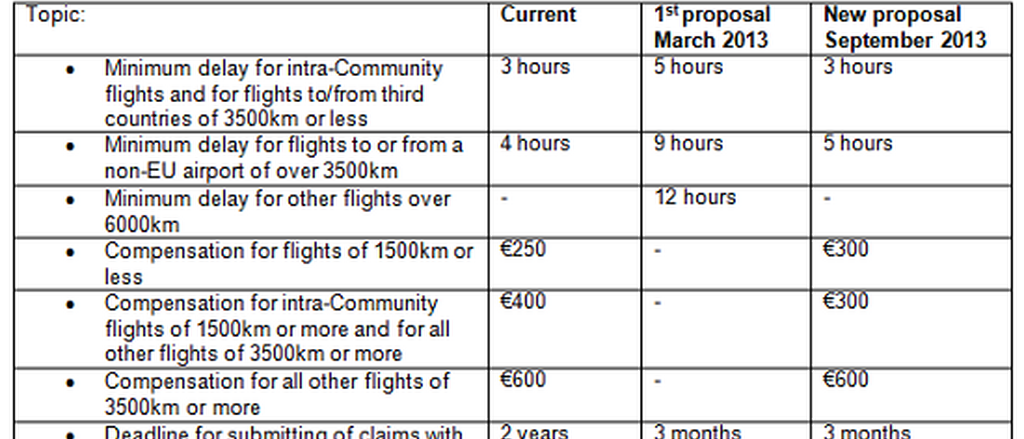
Claiming compensation harder for air passengers in future?
lunes, 16 de septiembre de 2013
Claiming compensation harder for air passengers in future? Brussels threatens passenger rights
Brussels, 16 September 2013 – Today, the European Parliament’s Transport Committee will hold a policy debate about the potential revision of the rules for compensation in flight delays and cancellations. The proposed amendment of current regulation will mean many of the rights air passengers have obtained in recent years will be threatened. And even under current law, consumers have found getting what they are entitled to independently can be extremely difficult when battling the almighty airlines. Consumer rights organisations are inundated with requests for assistance from passengers who strike out in their own attempts in getting compensation. If current legislation is revised, it could very well result in chaos, particularly if the plans to drastically lower the deadline to submit a claim with an airline pass.
Since 23 October 2012, air passengers experiencing delays of 3 hours or more on European flights have been entitled to compensation. On that date, a verdict by the European Court of Justice ended nearly 5 years of conflict between airlines and passengers. But it turns out actually getting compensation is a complicated process, even under current Regulation. The rules and laws contain too many ambiguities, and passengers lack the tools to battle airlines without help from third parties.
National Enforcement Bodies
One of the reasons claiming compensation is so difficult is that airlines tend to reject all compensation claims initially, even those that should fall within the scope of Regulation. Once rejected, a passenger is dependent on the Enforcement Body of the country where the delay or cancellation took place. It is then this body’s responsibility to investigate the complaint and adopt a position on the validity of the claim. However, despite costing millions annually, many of the National Enforcement Bodies perform poorly and do not follow guidelines – something the European Commission hasn’t yet set up sanctions for. As a result, when not receiving the help sorely needed from an enforcement body, passengers have no one to turn to, and can only enforce their rights if they take an airline to Court, or hire a third party to do so on their behalf.
Limitation period
This inadequate functioning is set to be addressed during the policy meeting. But it remains to be seen when passengers can expect things to improve, and what will happen with the thousands of passengers whose claims have come to a standstill due to the lack of adequate help from the enforcement bodies. Moreover, many of these claims will long since have expired. Airlines have now gotten away scot-free, as they haven’t been fined for their failure to treat passengers according to Regulation, which the enforcement bodies are authorised to do.
Restriction of rights
In addition to the current rights being very hard to exercise and enforce, these rights are now also at risk of being restricted. The proposed amendments focus mainly on the number of hours that determine when compensation is due, the amount of compensation, and the deadline for submitting claims with an airline. For instance, in the future, passengers would potentially need to submit their claim no later than 3 months after the date of the flight, where the current deadline is set at 2 years. This severe lowering poses a problem, particularly because the majority of travellers aren’t yet aware of the compensation regulation. Tom van Bokhoven of claim and passenger rights organisation http://vuelo-con-retraso.es: “This revision would finally give the aviation lobby what they have been fighting for. For air passengers, this would be very bad news indeed, as there’s a good chance airlines will hold claims in anticipation of a decision, the same way they did in the months leading up to 23 October 2012. Brussels has taken a stance for passenger rights in recent years, but it remains to be seen if they will reverse all the progress made.”




¿Te ha gustado este contenido?
Gracias, ¡nos has alegrado el día!
¡Ayúdanos a mejorar!
Entendido, ¡gracias!